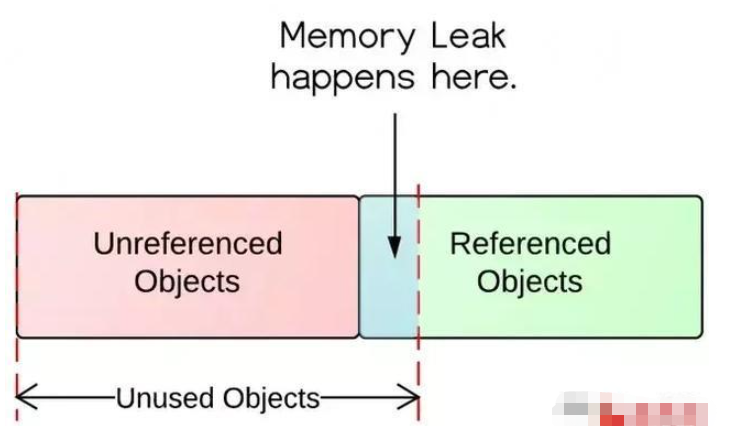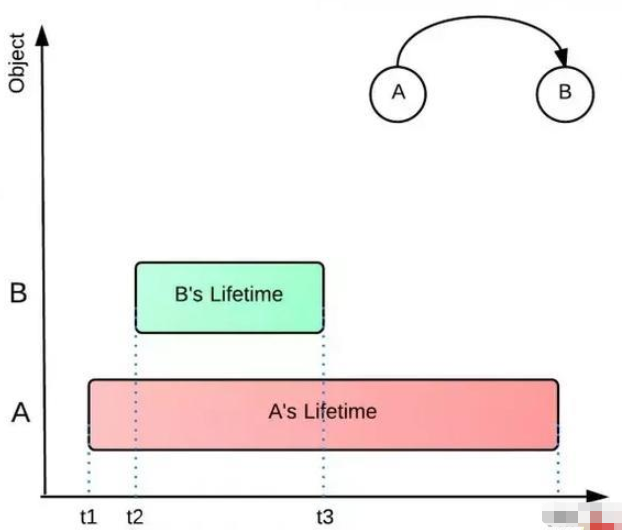
1. What is a memory leak
Definition of memory leak: The application no longer uses objects, but the garbage collector cannot delete them because they are being referenced.
To understand this definition, we need to understand the state of objects in memory.
The image below illustrates which ones are unused and which ones are unreferenced.

In the diagram, there are referenced objects and unreferenced objects.
Unreferenced objects will be garbage collected, while referenced objects will not be garbage collected.
An unreferenced object is definitely unused because no other objects refer to it.
However, not all unused objects are unreferenced.
Some of them are being referenced!
This is where the memory leak comes from.
2. Why memory leaks occur
Let's look at the following example to see why memory leaks occur.
In the following example, object A refers to object B. A's lifetime (t1 - t4) is much longer than B's lifetime (t2 - t3).
When B is no longer used in the application, A still holds a reference to it.
In this way, the garbage collector cannot delete B from memory.
This may cause out of memory problems, because if A performs the same operation on more objects, there will be a lot of uncollected objects and consume memory space.
It is also possible that B holds a bunch of references to other objects. Those objects referenced by
B will not be collected.
All these unused objects will consume valuable memory space.

3. How to prevent memory leaks
Here are some quick practical tips to prevent memory leaks:
Pay attention to collection classes such as HashMap, ArrayList, etc. as they are common places where memory leaks are found.
When they are declared static, their life cycle is the same as the application life cycle.
Pay attention to event listeners and callbacks. A memory leak can occur if a listener is registered but not unregistered when the class is no longer used.
If a class manages its own memory, programmers should be wary of memory leaks.
[1]Member variables of objects that are often multiplied to point to other objects need to be null.
The above is the detailed content of How to prevent memory leaks in Java. For more information, please follow other related articles on the PHP Chinese website!




